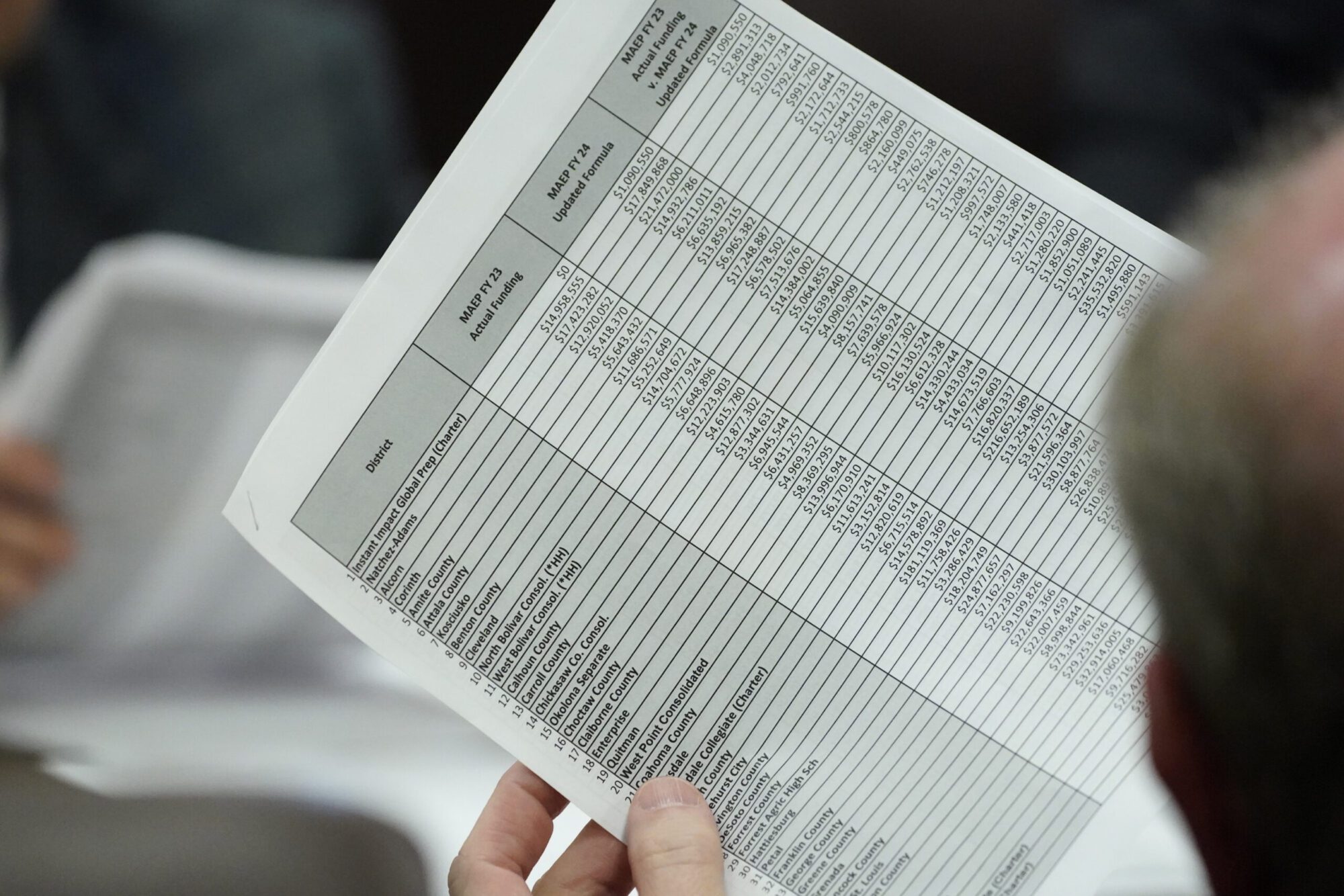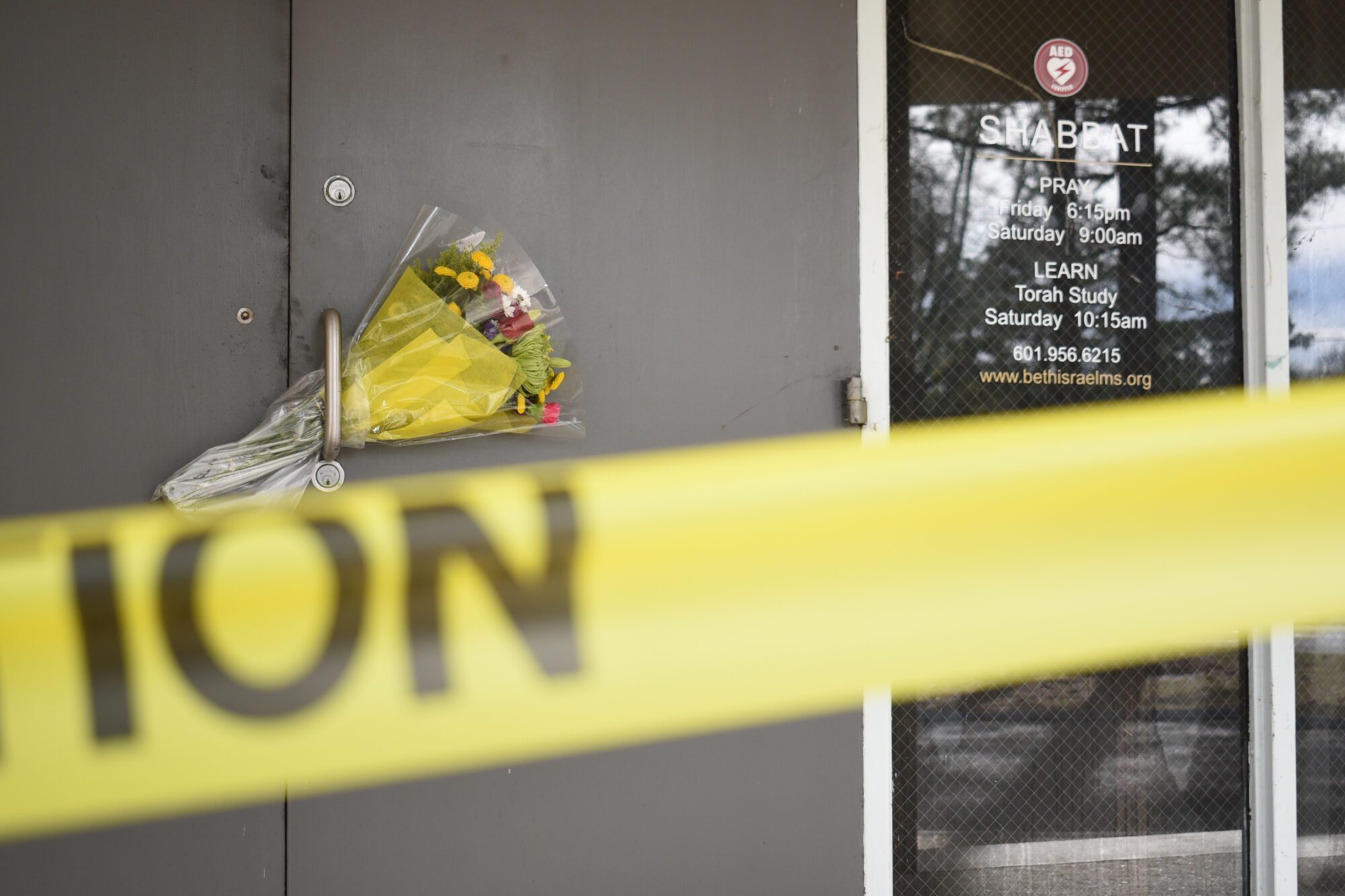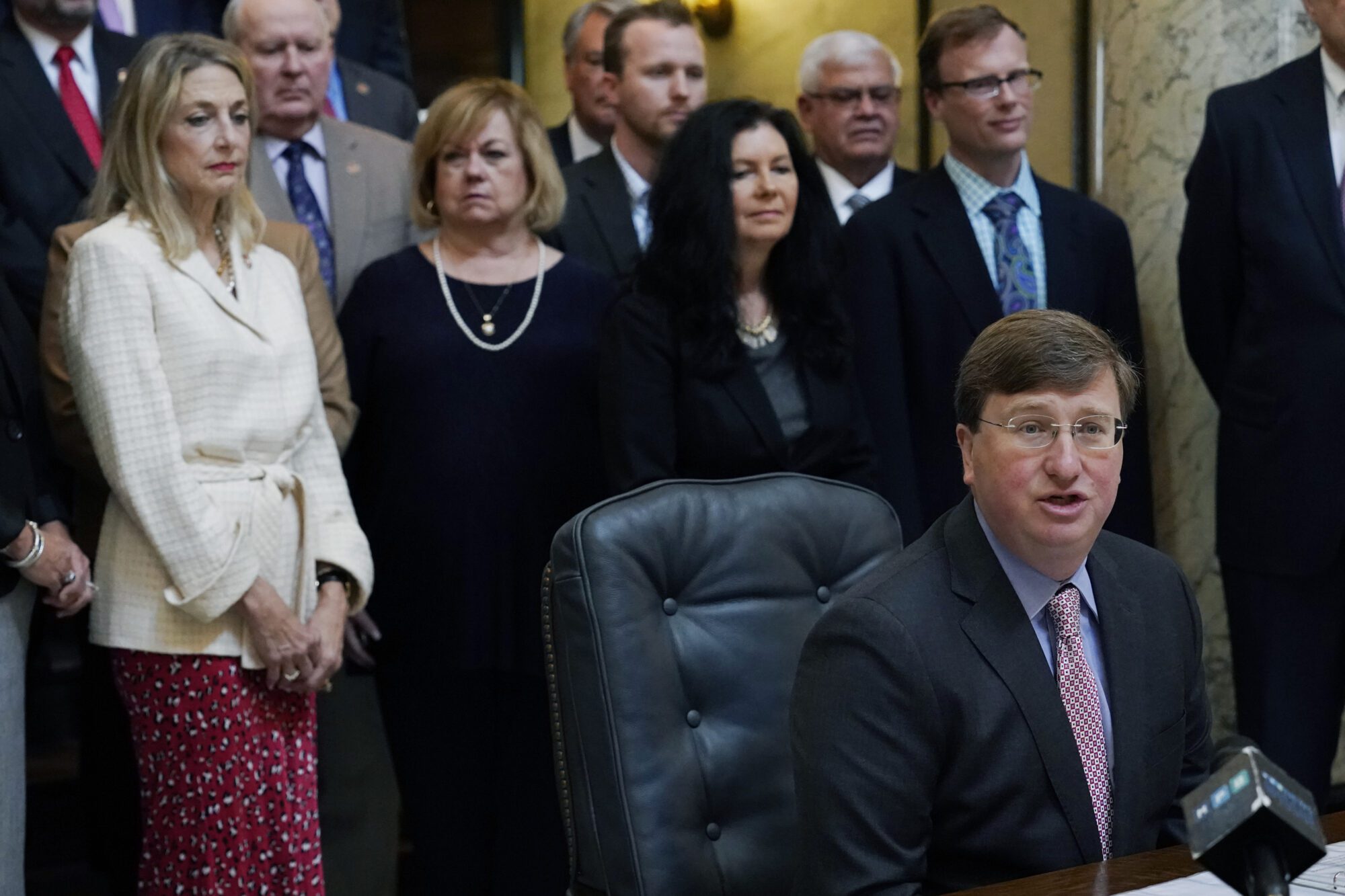
A Senate Appropriations Committee member reviews proposed legislation at the Mississippi Capitol in Jackson. (AP Photo/Rogelio V. Solis - Copyright 2023 The Associated Press. All rights reserved.)
Even as enrollment in Mississippi’s public schools has declined by more than 10 percent in the last decade, K-12 schools have seen sizable increases in spending.
In 2022, the Mississippi Legislature passed a record pay raise for teachers, a $246 million annual investment in the state’s educators. Building on the pay raises, this past session, the Legislature increased the state’s funding of education by another $100 million.
For years, much political attention has been paid to the Mississippi Adequate Education Program (MAEP), a funding formula designed in 1997 with the stated goal of eliminating inequity between school districts.
Proponents of MAEP have long bemoaned the fact that the formula has rarely been “fully funded.” The frustration culminated in a 2015 ballot measure to amend the Mississippi Constitution. Initiative 42 sought to remove the authority to set the education budget from the Legislature. The initiative failed to win popular support.
In 2018, Speaker Philip Gunn led an effort to rewrite the MAEP formula with the help of a New Jersey-based education consulting group, Ed Build. That effort also petered out, failing to secure enough votes in the Mississippi Senate.
In discussions of MAEP, the amount of money spent on education in Mississippi that occurs outside the funding formula is sometimes missed, as is the decline in total students served within the K-12 system.
In 2015, Mississippi’s total K-12 education spending from state and federal sources was $3.18 billion. This number excludes funding to Mississippi Public Broadcasting and the Library Commission. Of those funds, $2.19 billion were dedicated to MAEP, meaning nearly $1 billion went toward education outside the funding formula.
This year, the Legislature appropriated a total of $4.98 billion for K-12 education spending for FY 2024. The fiscal year runs from July 1, 2023, until June 30, 2024. A sizable portion of the increase – roughly $1 billion – has come in the last few years as the federal government increased spending in conjunction with COVID. But even if discounting the COVID-bump entirely, total education spending in Mississippi increased by more than 20 percent in a decade.
Approximately $2.4 billion of the appropriation for FY 2024 occurred under the MAEP formula, meaning an equivalent amount, including the $100 million in new funds appropriated by the Legislature, passed outside of the formula.
Lt. Gov. Delbert Hosemann said he worked with House Speaker Gunn to provide the extra $100 million for the education system.
The spending increases that have occurred over the last decade are coupled with large declines in the number of students enrolled in Mississippi’s public schools.
According to the Mississippi Department of Education, there were 490,953 students enrolled in Mississippi’s public schools for the 2014-2015 school year. In the 2022-2023 school year, that number had declined to 440,285, down more than 10 percent.
The combination of more money and fewer students, means Mississippi is spending much more per student than in the past.
For years, critics of the state’s public education system have argued that it is last in the nation in student funding. According to the Education Data Initiative (EDI), this is untrue. EDI says Mississippi’s per student spending now places the Magnolia State ahead of other states like Arizona, Florida, Idaho, Nevada, North Carolina, Oklahoma and Tennessee.
Stipulations for the use of the additional $100 million in funding that was approved are few, but there is one important exception. The extra money cannot be used to provide pay increases to superintendents, assistant superintendents and principals. The exclusion of administrative salaries reflects a legislative intent for the money to end up in the classroom.
When asked about the additional $100 million in funding this year, Dr. Felica Gavin, Chief of Operations for the Mississippi Department of Education, told Magnolia Tribune, “We certainly appreciate the Legislature doing that. It certainly had a positive impact. We advocate for full funding, that just got us a little bit closer.”
According to MDE’s MAEP District Allocation Notice, it would take another $200 million above the 2024 MAEP appropriation to fully fund the formula.
Districts have been encouraged to create separate accounts for the additional funding as well as create unique coding to show how the funds were spent, but it is still not required.
“Then they would have ease of access to say how they spent the funds,” Gavin said.
Lt. Governor Hosemann said that while he cannot say how the districts are spending the money, he expects that by February or March all will be able to see the results of where the money was spent. He said those findings will be considered while the Legislature works on the budget for the next fiscal year.











